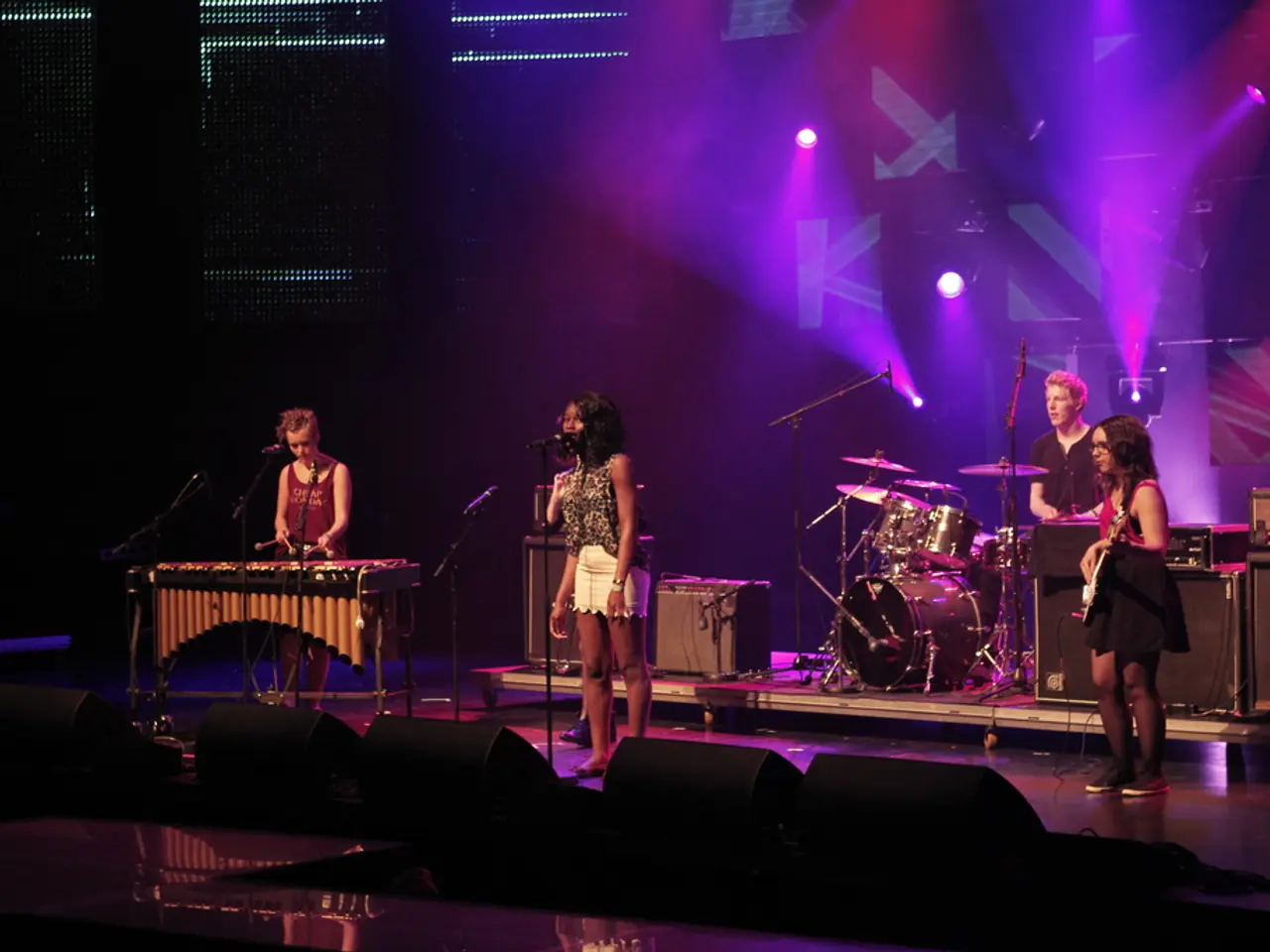College Radio Arlington Station (CRAS) presents a graduate discussion panel.
In the world of audio engineering, graduates of the Conservatory of Recording Arts & Sciences (CRAS) have made a name for themselves, carving out diverse careers in music, video games, and other media.
The 11-month program at CRAS offers students access to state-of-the-art audio recording and mixing gear, including Pro Tools 12, API Legacy consoles, SSL AWS consoles, Studer Vista consoles, and more. This hands-on training provides a solid foundation for students to embark on their audio engineering journeys.
Award-winning instructors at CRAS have excelled in sound reinforcement, audio recording and production, digital recording, troubleshooting/maintenance, and music business. Their expertise and real-world experience ensure that students receive comprehensive training.
CRAS has two campuses in Gilbert and Tempe, Arizona, and has been providing quality vocational training in audio recording for over three decades.
One such graduate is Jonathan Brannen, a 2019 CRAS graduate who started his career at Bang Zoom Studios as an intern in 2020. By 2022, he was actively recording and editing shows and video games. Brannen attributes part of his success to CRAS, which provided both foundational knowledge and an initial entry point into the industry.
The CRAS grad panel, held on July 25, 2025 at its Gilbert campus, underscored the variety of individual journeys within the audio engineering field. Graduates like Brannen come from varied backgrounds and find different niches, but common elements include internships, continuous learning, and networking within the industry.
Stephan Tacub, another CRAS student, found the Grad Panel insightful due to the unique stories and backgrounds of the panelists. He believes the panel offers relevant insights into what their journeys might look like after leaving for internships.
Thomas Warren, a 2012 CRAS graduate, is a freelance mix engineer in Los Angeles and has worked with renowned producers like Stargate. Bretagne Fouliard, a 2021 CRAS graduate, is a stage hand with Clair Global and has toured with bands like Megadeth, Imagine Dragons, and Styx.
CRAS' curriculum and equipment are constantly updated to keep pace with the rapid advancements in the music and sound recording industries. All students must complete a 280-hour industry internship to graduate from the Master Recording Program II.
For more information about CRAS, visit www.cras.edu, contact Kirt Hamm at 1-800-562-6383, or email [email protected]. CRAS offers education in broadcast audio, live sound, film and TV audio, music, and video game audio.
In summary, CRAS graduates often take career paths starting with internships leading to assistant roles and then full engineering positions. Key to their success are practical experience, ongoing learning, strong work ethic, and the networking opportunities CRAS provides through its connections in the industry.
[1] Note: Specific detailed success stories of CRAS alumni beyond Brannen were not found in the search results. However, the general theme is that CRAS provides practical training that equips students for immediate industry roles, particularly in areas like audio for video games, music production, and post-production.
- Graduates from the Conservatory of Recording Arts & Sciences (CRAS) utilize equipment like Pro Tools 12, API Legacy consoles, SSL AWS consoles, and Studer Vista consoles during their hands-on training in recording and mixing audio.
- With the assistance of award-winning instructors, CRAS students gain expertise in areas such as sound reinforcement, audio recording and production, digital recording, troubleshooting/maintenance, and the music business.
- Online educational resources like CRAS' website, email address, and phone number are available for those interested in learning more about the educational and self-development opportunities offered in fields like broadcast audio, live sound, film and TV audio, music, and video game audio.
- By completing a 280-hour industry internship, students of CRAS' Master Recording Program II receive practical experience essential for their future careers in the audio engineering industry.
- The CRAS curriculum is updated regularly to remain current with advancements in the music and sound recording industries, which flexibility enables students to pursue a diverse range of career paths, such as working as a freelance mix engineer or a stage hand in live sound.




